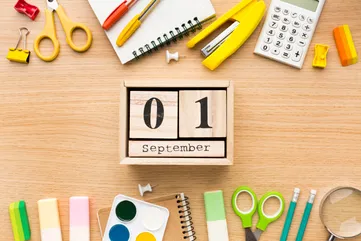Coping Strategies
Coping strategies are specific techniques and actions teens use to manage stress, solve problems, and regulate emotions when facing challenges or difficult situations.
Why strategy flexibility improves outcomes
Research on coping flexibility shows that individuals who can match coping strategies to specific situations show better psychological adjustment than those using single strategies regardless of context. The ability to shift between problem-focused and emotion-focused coping based on controllability of the situation predicts better outcomes.
Studies of adolescent coping reveal that teens who develop diverse coping repertoires show lower rates of anxiety and depression, better academic performance, and improved social relationships. Teaching coping flexibility during adolescence creates lifelong resilience patterns.
Cheng et al. (2014) demonstrated that coping flexibility significantly predicts psychological adjustment, with flexible copers showing 45% lower rates of depression and anxiety. Compas et al. (2017) found that adolescents with diverse coping repertoires show better academic and social outcomes across multiple domains.
You're not alone
If your teen only knows one way to handle stress and falls apart when it doesn't work, they need a broader coping toolkit. Many parents notice their teens defaulting to the same ineffective strategies repeatedly, like avoiding all conflict or always seeking distraction. Building diverse coping strategies takes time and practice. Families who actively expand coping repertoires together report better crisis management and increased resilience.
What it looks like day to day
Student
Your teen uses breathing exercises for test anxiety, talks to friends about social stress, and uses [physical activity](/the-parent-bit/balance-exercises-an-alternative-treatment-for-adhd) for general frustration.
Parent
You see your teen selecting different strategies for different challenges rather than applying the same approach to everything.
Tiny steps to try
Expand coping strategy repertoires through exploration and practice.
- 1
Strategy matching
Help identify which strategies work for which situations. Test anxiety needs different tools than friendship drama.
- 2
Effectiveness tracking
Keep notes on what helps in different situations. Build personalized strategy guides based on real experience.
- 3
Preventive coping
Use strategies proactively, not just reactively. [Regular routines](/the-parent-bit/finding-order-in-the-chaos-setting-up-calendars-for-kids) prevent stress accumulation.
- 4
Strategy stacking
Combine complementary strategies. Exercise followed by journaling might work better than either alone.
- 5
Regular review
Monthly check-ins about what's working. Coping strategies need adjustment as situations and development change.
Why diverse coping strategies matter
Having multiple coping strategies prevents teens from becoming overly reliant on single methods that might not work in all situations or could become unhealthy if overused.
Effective coping strategy categories:
• Active strategies: Problem-solving, seeking help, planning
• Emotional strategies: Acceptance, reframing, emotional expression
• Avoidant strategies: Distraction, denial, disengagement
• Social strategies: Talking to friends, seeking support
• Physical strategies: Exercise, relaxation, breathing
• Creative strategies: Art, music, writing
The key is matching the right strategy to the specific situation.
References
Cheng, C., Lau, H. P. B., & Chan, M. P. S. (2014). Coping flexibility and psychological adjustment to stressful life changes: A meta-analytic review. Psychological Bulletin, 140(6), 1582-1607.
Compas, B. E., Jaser, S. S., Bettis, A. H., Watson, K. H., Gruhn, M. A., Dunbar, J. P., Williams, E., & Thigpen, J. C. (2017). Coping, emotion regulation, and psychopathology in childhood and adolescence: A meta-analysis and narrative review. Psychological Bulletin, 143(9), 939-991.
Ready to help your teen thrive?
Get personalized 1-on-1 coaching to build better habits and boost grades. Join 10,000+ families who trust Coachbit.
Frequently Asked Questions
What if my teen's coping strategy is just avoiding everything?
Avoidance works short-term but creates long-term problems. Help your teen distinguish between strategic withdrawal (taking a break to recharge) and problematic avoidance (never facing challenges). Gradually introduce approach-oriented strategies for manageable challenges while allowing avoidance for genuinely overwhelming situations. Build success with small confrontations before tackling bigger ones.
How many coping strategies should teens have?
Quality matters more than quantity. Aim for 3-5 well-practiced strategies across different categories rather than dozens of superficial techniques. Ensure coverage of immediate relief (breathing exercises), processing strategies (journaling or talking), and problem-solving approaches. Having reliable go-to strategies beats knowing many techniques poorly.
Related Terms
Coping Mechanisms
Coping mechanisms are conscious strategies and unconscious responses people use to manage stress, emotions, and difficult situations, which can be healthy or unhealthy.
Emotional Regulation
Emotional regulation is your teen's ability to manage and respond to feelings in healthy ways, even when emotions feel overwhelming or out of control.
Resilience
Resilience is the ability to bounce back from setbacks, adapt to challenges, and grow stronger through adversity rather than being defeated by it.
Stress Management
Stress management is the ability to recognize stress signals and use healthy strategies to cope with pressure rather than becoming overwhelmed or shutting down.
Related Articles

Balance Exercises: An Alternative Treatment for ADHD
A breakthrough in neuroscience shows that easy balance training exercises done at home can improve brain functioning as an alternative treatment for ADHD.
Read article
Finding Order in the Chaos – Setting up Calendars for Kids
Creating a calendar and daily schedule for kids can be beneficial to manage school, homework, extracurriculars and hobbies. Color-coding and time-blocking are helpful tools for kids with ADHD.
Read article
3 Ways an Executive Functioning Coach Can Help Your Child
Discover why executive functioning skills are crucial for your child's success. Learn how an executive functioning coach can make a difference
Read article
